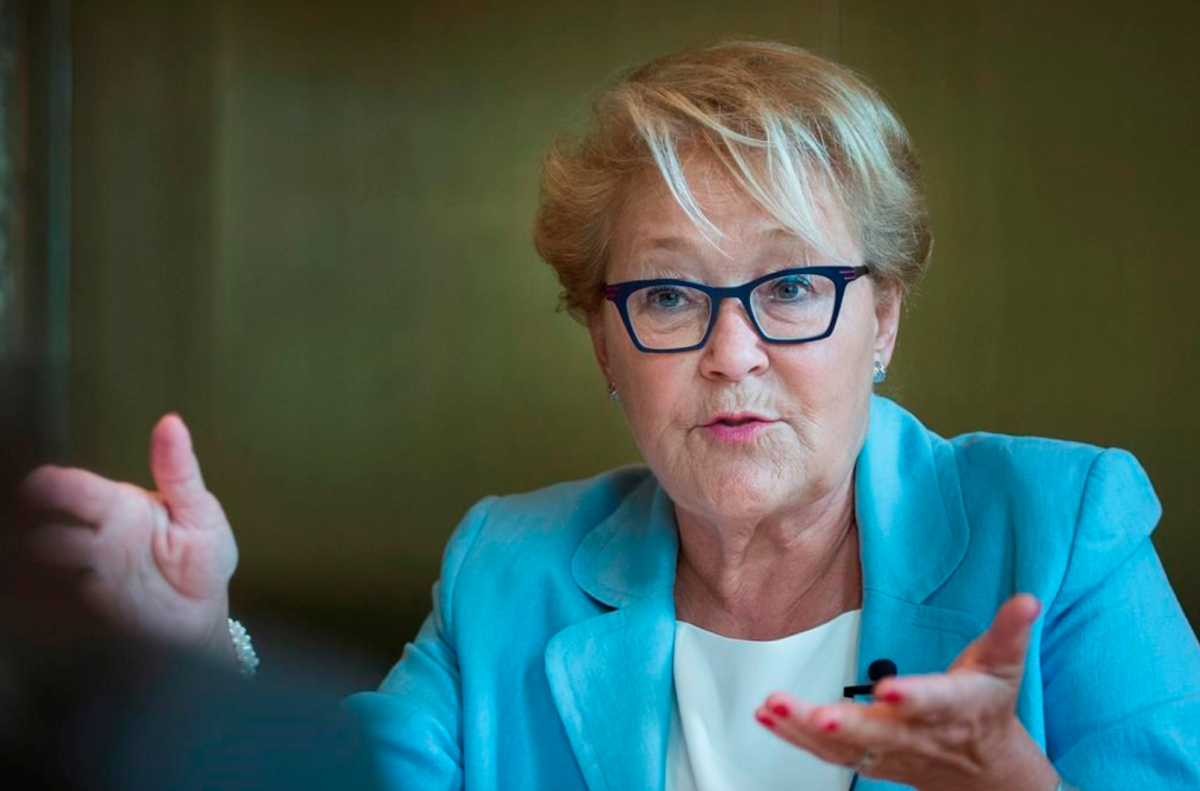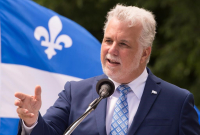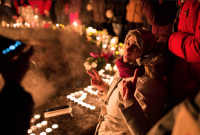Support strong Canadian climate journalism for 2025
As the fifth anniversary of Quebec’s election shooting approaches, Pauline Marois says she has forgiven the man who murdered a lighting technician that night and who was also intent on killing her.
Marois was on stage at a Montreal nightclub on Sept. 4, 2012, celebrating the realization of her cherished dream of becoming Quebec premier.
The then−Parti Quebecois leader had been speaking to supporters in the jam−packed Metropolis for a few minutes when she was hastily escorted off the stage amid widespread panic and confusion.
By then, lighting technician Denis Blanchette was dead and fellow stagehand David Courage seriously injured after both were struck by the same bullet outside the nightclub.
Testimony at Richard Henry Bain’s trial revealed he told a forensic psychiatrist two months after his arrest he wanted to set fire to the venue and "kill as many separatists as possible," including Marois.
But despite Bain’s murderous intentions, Marois says she has forgiven him.
"From the moment there was a verdict and a sentence...Yes, I am someone who forgives," she told The Canadian Press in a recent interview. "You know, there’s a strong streak of social worker in me. But I must say I was particularly satisfied with the outcome as the judge recognized it was an attack on democracy."
Marois said she wasn’t really afraid for her own well−being that night but that she did fear for the safety of her family and the PQ faithful in attendance.
"When I was in the corridor (after being whisked off the stage), I saw smoke getting into the room and behind the stage," she said. "I was concerned that if people saw the smoke, they might panic. And the room was packed. And that’s putting it mildly. There were people everywhere.
"We know that when there are crowds like that and there is any kind of movement, even if there is no fire, people can get crushed."
Marois, who is now 68, said she still feels for Blanchette and Courage and their families.
"They’re not the people he wanted to kill," she said. "They’re not the ones he wanted to attack. It was me. I was the target. So I’m very aware they paid the price for me."
Marois, whose minority government was defeated in the 2014 election by Philippe Couillard’s Liberals, said becoming premier wasn’t always at the forefront of her thoughts.
"I did think about it around 1985, (when Rene Levesque stepped down) when I ran for the PQ leadership," she said. "But I didn’t get into politics with that idea. It’s not a dream I harboured for 40 years. But when I came back to the party with Mr. (Jacques) Parizeau, when Pierre Marc Johnson quit, I started to think about it again.
"But even then I didn’t think I was ready. So it was more in the last few decades that the idea began to take form."
A jury convicted Bain in August 2016 of second−degree murder in Blanchette’s death. He was also found guilty of three counts of attempted murder.
Second−degree murder carries a sentence of life imprisonment and the trial judge, Superior Court Justice Guy Cournoyer, ruled Bain will have to serve at least 20 years behind bars before being eligible for parole.
Cournoyer said there were "clear elements of forethought and planning" to Bain’s actions that made his act factually closer to first−degree murder than to manslaughter."





Comments